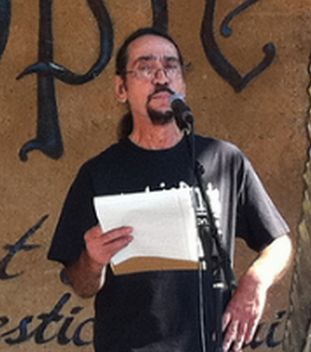"'Consultation' is a term that means whatever the speaker wants it to mean, or nothing at all."
We at Black Agenda Report will not speculate about the level of interaction between #BLM leadership and DNC operatives in the days and weeks before the Democratic endorsement. That's a fool's game, which distracts attention from central questions of movement politics -- such as the nature of demands -- and from facts that are clear to any observer. In their rebuke to the DNC, #BlackLivesMatter leadership resorts to what BAR co-founder Bruce Dixon calls "weasel words" to deny any direct collaboration with the Democrats. The endorsement was not done "in consultation with us," they say. "Consultation" is a term that means whatever the speaker wants it to mean, or nothing at all.
This is no time to engage in legalese. #BLM's leadership has spread confusion and done real damage to an incipient movement that does not belong to them, but to which they contributed an attractive hash-tag that has served as a general reference point for a whole range of organizations, activities and political tendencies. The "movement," if it is sustained, will grow a name of its own, distilled from the demands that define it. As with popular upheavals in previous eras, the movement will earn its name, and will be rooted in the streets, not the suites -- and certainly not in the Democratic Party, which is where movements go to die.
Malcolm X liberated the Black political conversation and set the stage for the most tumultuous, productive era in 20th century Black U.S. history in 1963, when he railed against the "Big Six," the civil rights organizations recognized by the white power structure as representatives of Black America: the NAACP, National Urban League, CORE, SCLC, SNCC, and A. Philip Randolph, the Black labor elder. Both before and after the March on Washington, which the Nation of Islam minister called "the farce on Washington," Malcolm accused the Big Six of collaborating with the Kennedys to cool down the passions of Black people in the street. "It was the grass roots out there in the street," Malcolm declared, in his " Message to the Grassroots ," in November, 1963. "[It] scared the white man to death, scared the white power structure in Washington, D. C. to death." The job of the Big Six was to put "cream in the coffee" -- to weaken and tame the movement, said Malcolm. In return, the Big Six were given money, recognition, and access to people in power.
"Self-imposed Black restraints on critiques of African American leadership came tumbling down."
Min. Malcolm X's accusations may have been unfair to some of the individuals and groups involved, but he put the Big Six on notice that he would not respect the old Negro dictum of not washing dirty linen [Black internal political disputes] in public [within earshot of white people]. As a result, self-imposed Black restraints on critiques of African American leadership came tumbling down, and a raucous movement emerged to acheive Black self-determination, and to join, and change, the world.
Malcolm turned the Big Six groups' access to the White House into a source of righteous suspicion. Why are you going in and out of The Man's house? If you enter The Man's house, you better tell the people what you talked about in there. What did you promise him? What is he offering you? Most importantly, you must understand that your presence in that house is, by definition, suspect.
At Black Agenda Report, we still believe that those who purport to lead Black people must be held accountable. That applies to the old-line Black civic groups, to the #BlackLivesMatter organization, and to the larger movement-in-the-making.
(Note: You can view every article as one long page if you sign up as an Advocate Member, or higher).





